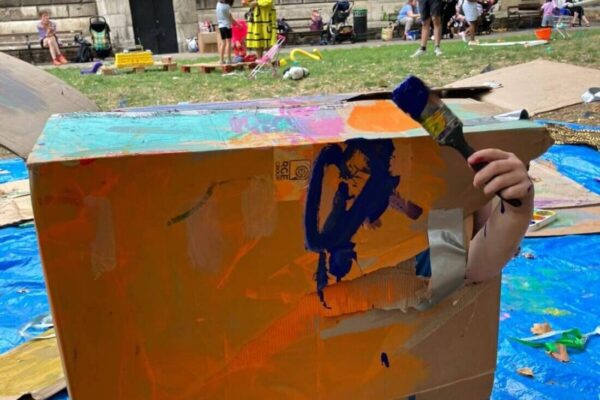How “Holiday Activities and Food” (HAF) can bless families at risk of hunger and isolation
Food insecurity continues to be a major problem in the UK.
Trussell’s latest stats record that, between April 2024 and March 2025, 2.9m emergency food parcels were distributed across the UK. Over 1m of these were given to households with children.
As the school holidays approach, not all families will be looking forward to the time off. Rather, the extended break from school represents a heightened risk of hunger and isolation. It is for these families that “Holiday Activities and Food” (HAF) programmes exist.
HAF is well established model of providing for economically disadvantaged children during the school holidays. Run by the local community, these programmes combine fun activities – such as sport, drama, and music – with the provision of a filling and nutritious meal. The value of HAF programming is recognised by central government, and local authorities distribute grants to community organisations looking to run projects.
Does your church want to run a “HAF” programme?
Some suggested actions for churches who are considering running such a holiday hunger programme:
- Research the HAF programming options in your area & what is already being run. Grants are likely to be available to you from your Local Authority, which will come with a set of requirements / criteria that you need to meet.
- Take inspiration from the model to run your own provision. Many churches already run ministries that feature activities for children and youth and / or community meals. Can you adjust / reframe what you are doing to cater to this specific need for a time-limited period?
- If you already have relationships with local schools, foodbanks etc., can you work with them to target your activities to low income families?
- Consider making use of an existing programme model, such as TLG’s “Make Lunch”
Make Lunch
TLG (Transforming Lives for Good) is a Christian charity, which exists to support children and young people. TLG’s operating model is to work with churches to deliver its core programmes – including Make Lunch.
The Make Lunch programme started in 2017 as a holiday hunger effort; however, as the programme has developed and social need has increased, Make Lunch has also become a way of combatting isolation. It’s stated aim is to create “community, belonging and meals that matter.” As such, the programme is not means tested and does not operate according to a referrals system (as with many food banks).
The types of activities offered by churches vary, though partners all have access to an online portal of activity ideas – including soft play, games, crafts and emotional resources. Moreover, each church partner is supported to run an annual ‘Family Faith Fun Day’.
Churches also offer a variety of meal options – drawing from recipes available from TLG’s “Kitchen Cupboard” website. Here, TLG puts forward a range of filling and nutritious meal options, alongside a “meal calculator” for establishing quantities.
The advantages for churches who partner with TLG to deliver their HAF programme include:
- Support on safety and safeguarding: guidance and / or partnership agreements exist for issues such as food hygiene, safer recruitment, and good safeguarding practice with volunteers and attendees
- Flexibility to run the programme according to their own rhythm – TLG does not dictate timeframes; some church partners chose to maintain their project during term time
- Access to a supportive network – TLG is a trusted name in schools and churches. Its broad network provide support and accountability and the sharing of best practice
What is the cost of Make Lunch?
Churches are asked to pay a one-off training fee of £200 and a monthly direct debit of £20.
These payments cover the upskilling of church teams to ensure they are well equipped to launch and maintain a new Make Lunch Project, as well as access to online and bespoke support. This support includes ideas and signposting to relevant funding for your local project.
What difference does it make?
- 97% feel part of a community because of Make Lunch
- 99% say Make Lunch has had a positive impact on their family’s wellbeing
- 96% of families say that TLG Make Lunch is a vital support to their family in the school holidays
- 100% of those attending Make Lunch would recommend it to other families


